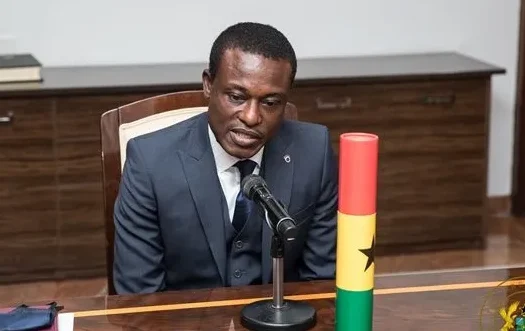OSP Arrests Three SML Directors in $500 Million Contract Scandal

In a significant development concerning the contentious $500 million government contract, the Office of the Special Prosecutor (OSP) has reportedly arrested three directors of Strategic Mobilisation Ghana Limited (SML). The arrests were made during a coordinated raid on the company’s offices in Osu and Tema on Tuesday, June 10, 2025, conducted by the OSP with crucial support from the National Security Secretariat.
According to a report by GHOne TV, the three individuals taken into custody are senior officers within SML. These arrests are a direct component of the OSP’s ongoing, high-profile investigation into the SML scandal, which has gripped public attention due to the massive financial implications for the state.
The raids, executed with valid search warrants, reportedly focused on gathering electronic evidence critical to the investigation. The OSP was specifically “interested in electronic information from the company’s servers,” indicating a deep dive into the digital records and communications related to the controversial contract. This focus suggests a methodical approach to uncovering the intricacies of the agreement and potential irregularities.
The SML scandal is notably one of the key investigations in which former Minister of Finance, Ken Ofori-Atta, has been declared a suspect. This broadens the scope of the investigation beyond SML itself, implicating high-ranking former government officials in the unfolding saga.
The Contentious Contract Under Scrutiny
At the heart of the OSP’s inquiry are the agreements forged between Strategic Mobilisation Ghana Limited (SML) and the Ghana Revenue Authority (GRA). These agreements pertained to providing real-time monitoring and audit services. Initially, SML’s mandate was to enhance tax compliance and revenue assurance within the downstream petroleum sector. The aim was to plug revenue leakages and ensure efficient collection in a vital economic sector.
However, the scope of SML’s contract underwent a significant expansion in 2023. This expansion controversially extended SML’s services to include upstream petroleum activities and, perhaps most notably, the mining sector. This dramatic broadening of the contract’s purview immediately triggered heightened public scrutiny and considerable concern from civil society organizations, policy analysts, and the media. Questions were raised about the necessity of such an extensive engagement, SML’s capacity to deliver on these new aspects, and the sheer cost to the Ghanaian taxpayer.
Financial Implications and Government Intervention
The financial implications of the SML contract have been a major point of contention. By the time the contract was eventually suspended in 2024, following an audit by KPMG, an staggering amount of GH¢1.06 billion had already been paid to SML. This figure represents a significant outlay of public funds for a contract that was ultimately deemed problematic enough to warrant suspension.
Furthermore, if the contract had been allowed to run its full course as originally envisioned, the total cost to the state was projected to reach an astronomical GH¢5.17 billion over a five-year period. This colossal sum further fueled public outrage and demands for accountability. The sheer scale of potential expenditure underscored the need for rigorous oversight and due diligence in government contracting.
Civil Society Demands Accountability
In the wake of these revelations and the KPMG audit findings, Civil Society Organizations (CSOs) have mounted a robust response. A coalition of five Non-Governmental Organisations has taken a decisive step, filing a lawsuit against the previous government. Their legal action seeks to recover the GH¢1 billion already paid to SML, arguing that these funds were disbursed under a questionable and potentially illegal contract. This legal challenge highlights the determination of civil society to ensure that public funds are managed responsibly and to hold government accountable for contracts perceived to be against the public interest.
The arrests of SML directors by the OSP mark a critical phase in this complex investigation, signaling a serious push towards uncovering potential corruption and ensuring justice in one of Ghana’s most significant financial scandals in recent memory. The public eagerly awaits further details as the investigation progresses.
Source: Thepressradio.com





